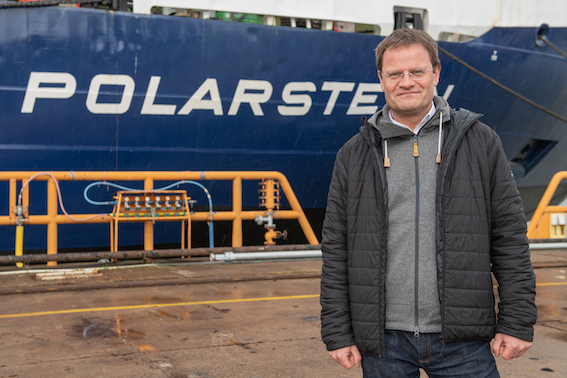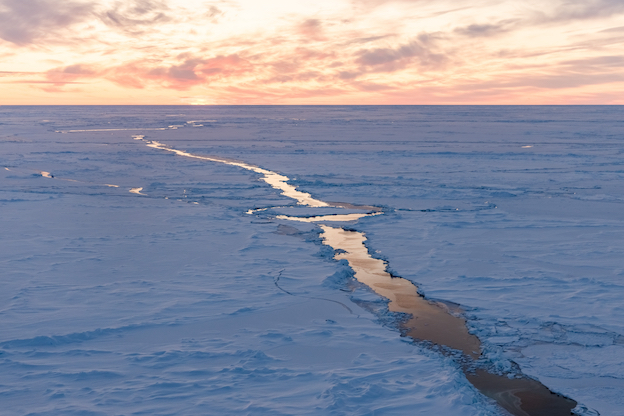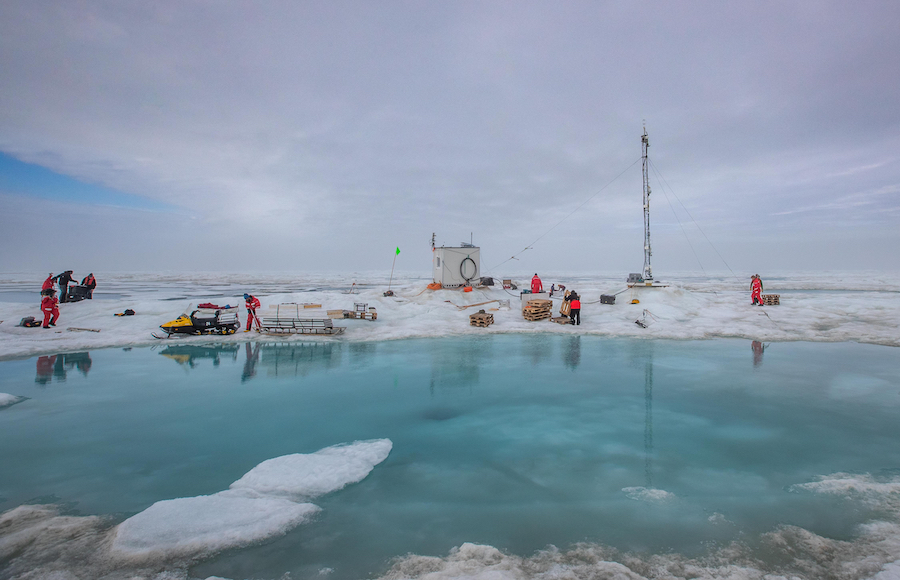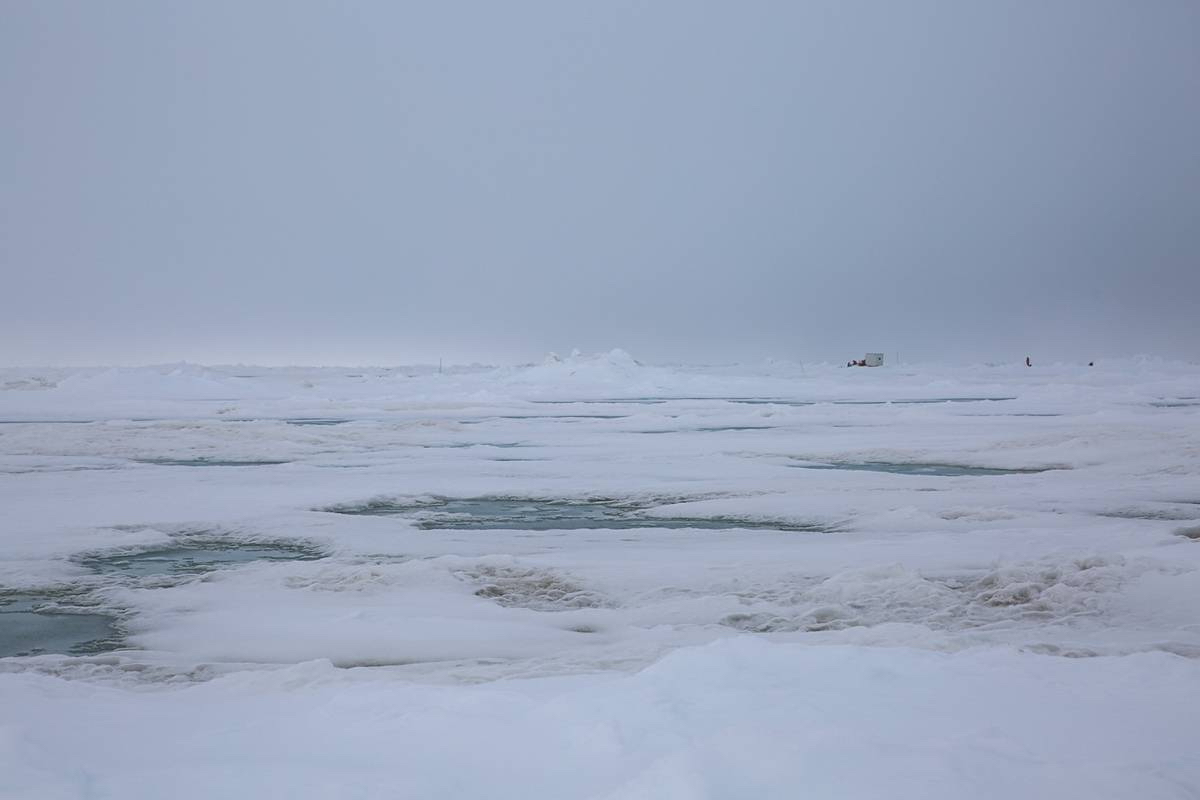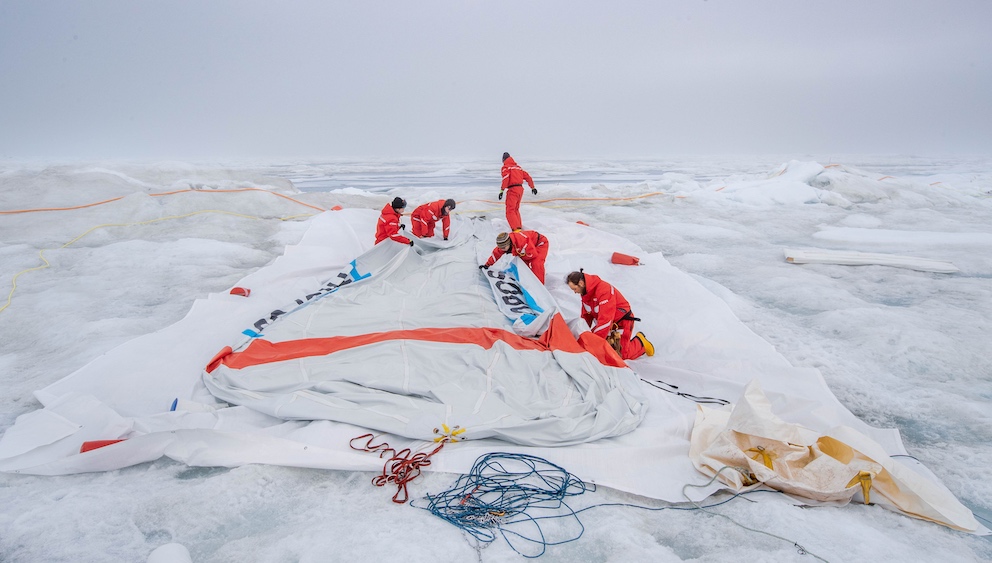The Polarstern ice breaker returns from its adventurous voyage to the Arctic Sea. And it is not bringing good news
The laboratory vessel left from Tromsø over a year ago with a crew of scientists to study the effects of climate change
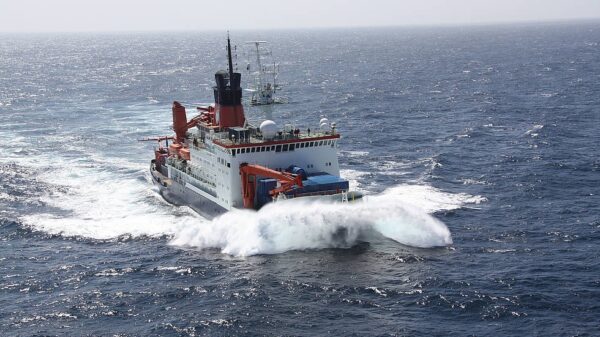
The Polarstern ice breaker returns from its adventurous voyage to the Arctic Sea. And it is not bringing good news
The laboratory vessel left from Tromsø over a year ago with a crew of scientists to study the effects of climate change
We left her as she was departing for the Arctic, with her cargo of scientists, to study the effects of climate change in one of the most delicate places on the planet. It was 20 September 2019 and the icebreaker Polarstern, flying the German flag, raised anchor from the Norwegian port of Tromsø
A few days ago, on 12 October, the laboratory-ship concluded its long voyage docking in the port of Bremerhaven, in Germany. A 388 day journey following the currents of the seas, bringing no good news. “The Great Arctic Ocean is in agony – explained the scientist Markus Rex, head of the scientific team of the expedition – we sailed in seas that were open to the horizon, in places where they used to be covered by ice.”
Markus Rex and his 442 scientists, including five Italians, who alternated on board the Polarstern, saw, with their own eyes, the tragic effects of climate change in the lands of eternal nights and days, where, compared to 40 years ago, the thickness of the Arctic ice has halved.
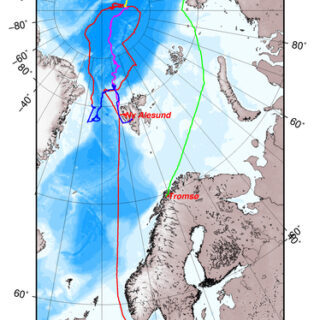
The route taken by the icebreaker Polarstern
The collected data will undergo multidisciplinary studies and analyses in European laboratories for the next two years, but none of the scientists participating in the Mosaic (Multidisciplinary Drifting Observatory for the Study of Arctic Climate) mission was able to hide their profound worry.
“The polar pack ice is melting at a dramatic speed – declared professor Rex to news reporters – and if the climate changes continue with their current speed, in a couple decades we will be sailing in the summer without seeing any pack ice at all. The Arctic is under threat and with that so is the rest of our planet”.
The icebreaker, Polarstern from the German research institute Alfred Wegener has a tonnage of 12 thousand tonnes and is 118 metres long overall. Among the many adventures that the icebreaker had to face, was a “siege” by over sixty polar bears.
The crew then had to form a special team with the job of keeping the bears away – without hurting them, naturally! – allowing the scientists to get off the ship and take their readings.
During the Arctic nights, the scientists had to deal with temperatures of over 40 degrees below zero. Certainly cold, but not as cold as the minus 50 degrees Celsius recorded by the expedition led by Fridtjof Nansen in 1895 on board the famous ship, Fram. This is also another bad sign of the times we have to prepare ourselves to live through.
Topics: arctic expedition, climate change, Polarstern

